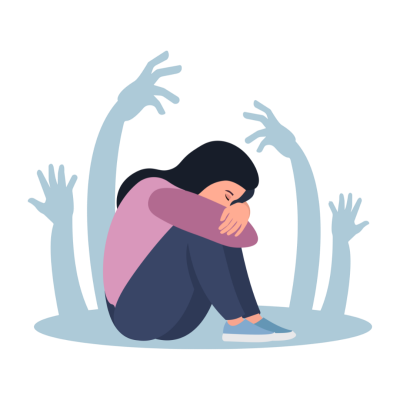
National PTSD Awareness Day on June 27th shines a spotlight on the serious effects of Post-Traumatic Stress Disorder (PTSD), urging everyone to grasp the significance of this mental health challenge and take steps to support those affected. Dr. Stephen Mandler, Chief Medical Officer and Chief Clinical Officer at Orchard Place, says, “However, it is equally important to recognize the broader mental health effects of trauma, particularly among youth.”
PTSD doesn’t discriminate, and sadly, children are among those impacted by this challenge. According to the National Center for PTSD, “Studies show that about 15% to 43% of girls and 14% to 43% of boys go through at least one trauma. Of those children and teens who have had a trauma, 3% to 15% of girls and 1% to 6% of boys develop PTSD.” These young individuals often face physical abuse, neglect, sexual abuse, and/or psychological abuse, which can lead to a range of mental health issues beyond PTSD, including depression, anxiety, and behavioral problems.
Recognizing the mental health effects of trauma is crucial. “Trauma can leave lasting scars, making those affected feel isolated and misunderstood. Trauma itself has been found to affect the structure and function of the brain,” explained Dr. Mandler. “National PTSD Awareness Day serves as a critical reminder of the importance of addressing not only PTSD but also the wide spectrum of trauma-related mental health issues.” Education about these conditions is a powerful tool in combating stigma and fostering empathy. By learning about symptoms such as flashbacks, nightmares, severe anxiety, and uncontrollable thoughts about the event, we can better support those affected.
It's important to understand that PTSD and other trauma-related mental health conditions are not signs of weakness, but legitimate and serious health issues that require appropriate treatment. Resources such as therapy, medication, and support groups can significantly improve the quality of life for those affected. Public awareness campaigns, educational programs, and community events on National PTSD Awareness Day play a pivotal role in spreading this knowledge.
Supporting someone affected by trauma involves patience, understanding, and a willingness to listen without judgment. Loved ones can encourage individuals to seek professional help and remind them that they are not alone in their struggle. On a broader scale, advocating for better mental health services can lead to more youth getting the care they need. National PTSD Awareness Day is not only about raising awareness of PTSD but also about fostering a compassionate society where all individuals affected by trauma feel seen, heard, and supported.
Dr. Mandler says to remember, “Together, we can make a meaningful difference in the lives of those affected by trauma, ensuring that youth mental health receives the attention and care it deserves.”